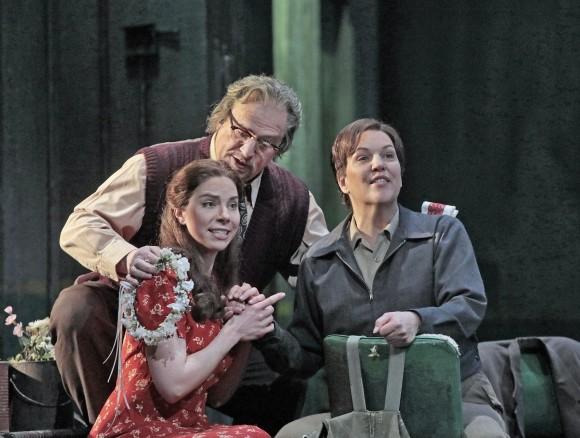NEW YORK—Ludwig von Beethoven’s only opera, “Fidelio,” deals with a man imprisoned for his political beliefs, a situation that is unfortunately as timely as ever. Indeed, German director Jürgen Flimm, whose 2000 production is being revived at the Metropolitan Opera, has moved the action from the 18th century up to the present day. The twist in the plot is that the rescuer is the prisoner’s wife.
The Plot
The title character and central figure in “Fidelio” is Leonore, who is the wife of Florestan and is pretending to be a man named Fidelio.
The action set in Seville, Spain, begins on a light note, with a prison guard trying to romance Marzelline, the daughter of the jailer, Rocco. The young woman rejects her suitor because she has fallen in love with Fidelio, her father’s new assistant.







